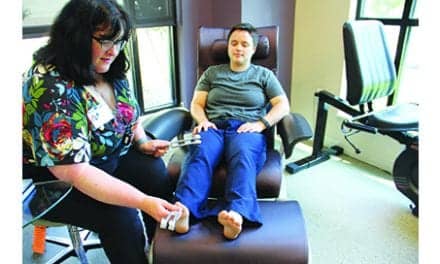A recent study demolishes the belief that at least one quarter of adults affected by osteoarthritis have been meeting the 150 minutes per week of exercise activity recommended by the federal government.
"We had assumed that people might be overstating physical activity in past self-reported data, but were surprised to find that the physical activity rates were much, much lower than what was previously reported," said Dorothy Dunlop, associate professor of medicine at Northwestern University Feinberg School of Medicine. Dunlop led the study which revealed more than half of women and 40% of men with arthritis are virtually couch potatoes.
The study required test subjects to wear an accelerometer to objectively measure their physical activity and determine whether they were meeting federal guidelines for individuals who suffer from osteoarthritis. Past research relied on self-reported accounts of exercise and activity. Test subjects were 49 years to 84 years old.
Participants were deemed inactive if they failed to sustain a 10-minute period of moderate-to-vigorous activity over the entire week of wearing the accelerometer. A substantial 40.1 percent of men and 56.5 percent of women studied were found to be inactive.
"This study found that fewer than one in seven men and one in 12 women met those guidelines when we had this objective measure, using the accelerometer," Dunlop says. "The more alarming finding is that so many people actually qualified as being inactive."
While more than half of men engaged in significantly more moderate-to-vigorous activity than women, the majority of men who didn’t fall into this category were spending their time in no activity to very light activity.
"The fact that so many people with arthritis are inactive should be a wake-up call to physicians," Dunlop said.
"Even though they have joint disease, patients need to be reminded that physical activity is actually good for them," Dunlop said. "People with arthritis should be as physically active as possible, even if they accomplish less than the recommended levels. When it comes to physical activity, there is good evidence that the benefits far outweigh the risks and being inactive is especially detrimental to health."
Dunlop emphasizes that some research indicate exercise may delay or even prevent disability in people with arthritis, Dunlop said. The study was published in Arthritis & Rheumatism, August 2011.
Source: Northwestern University


